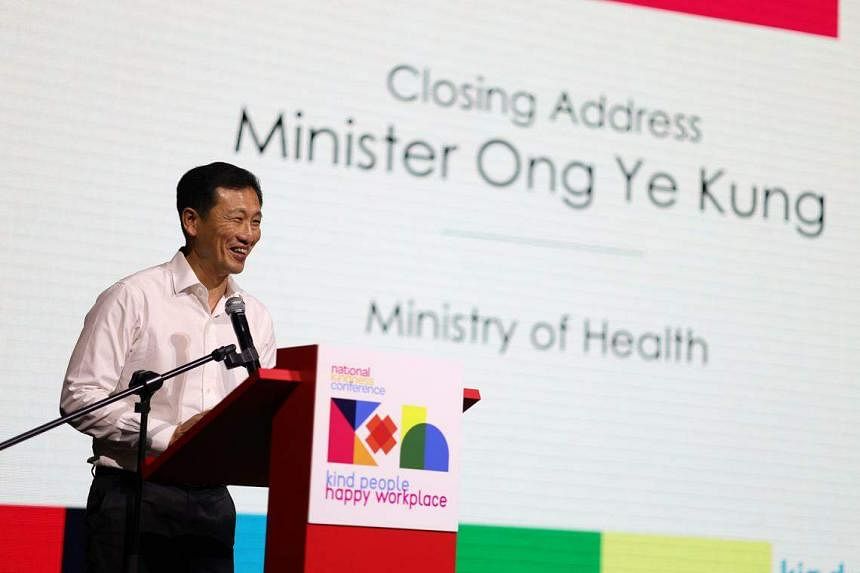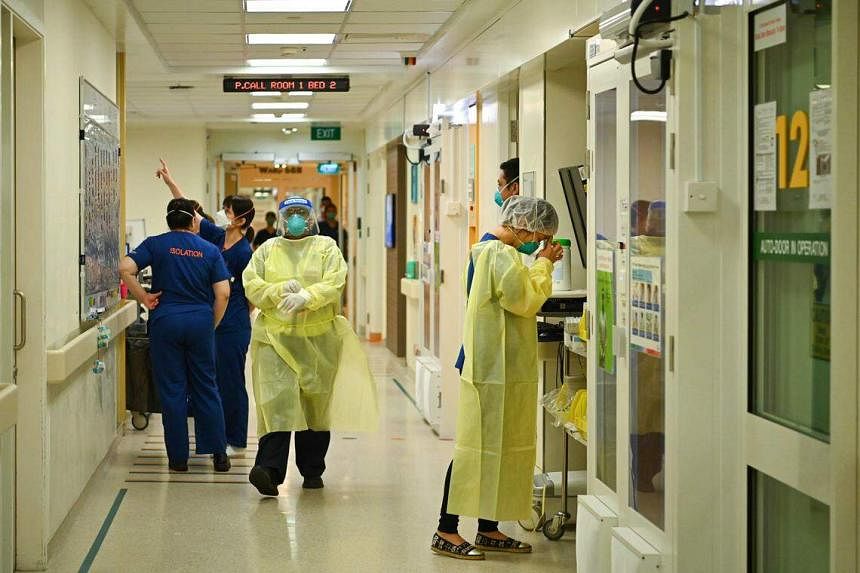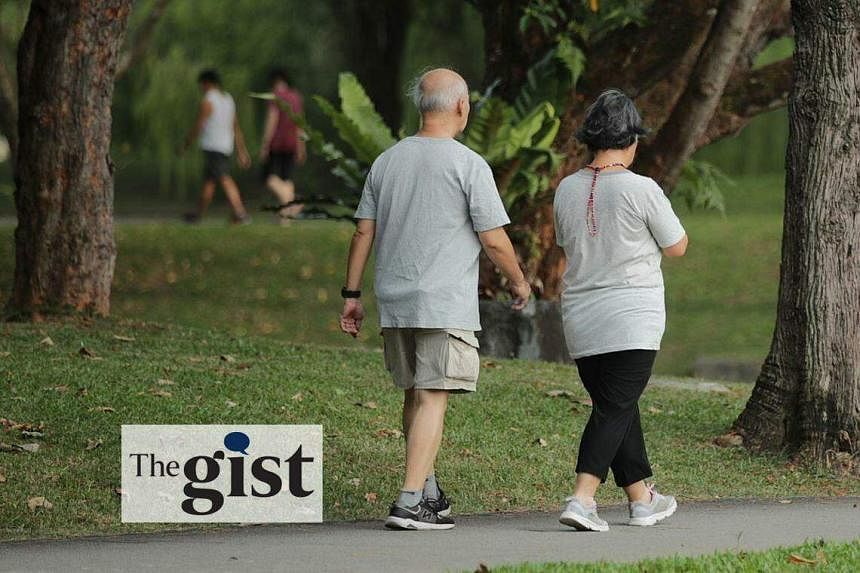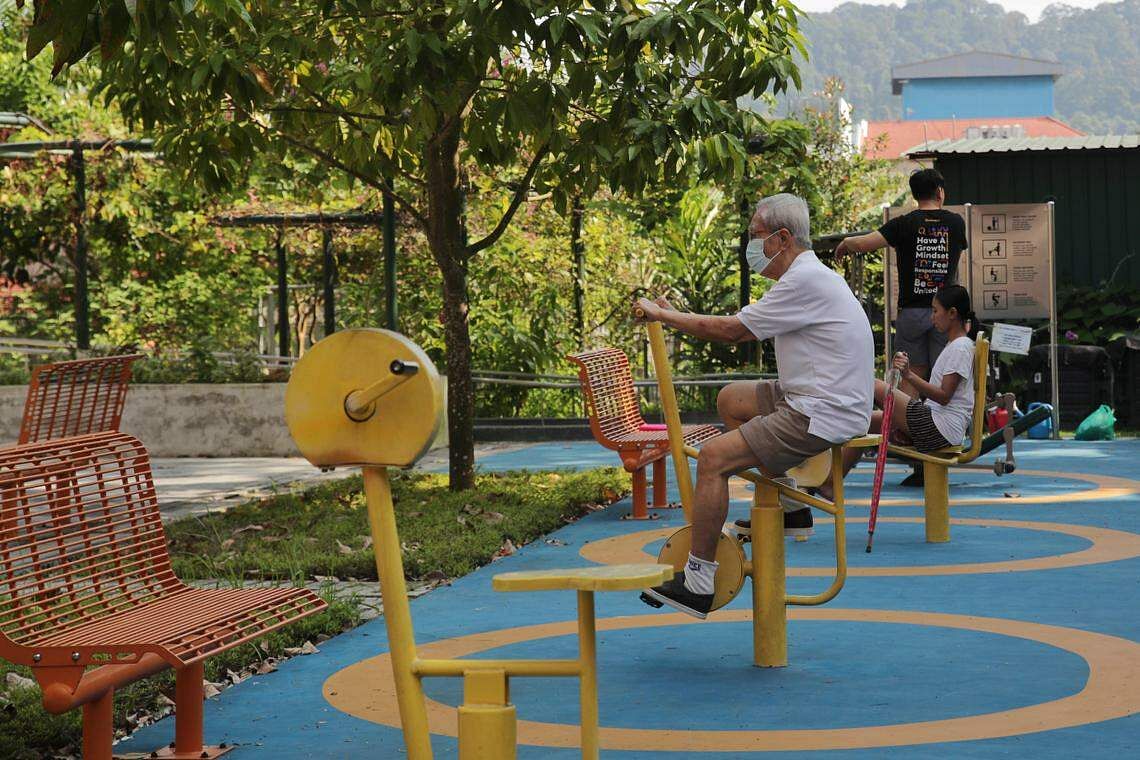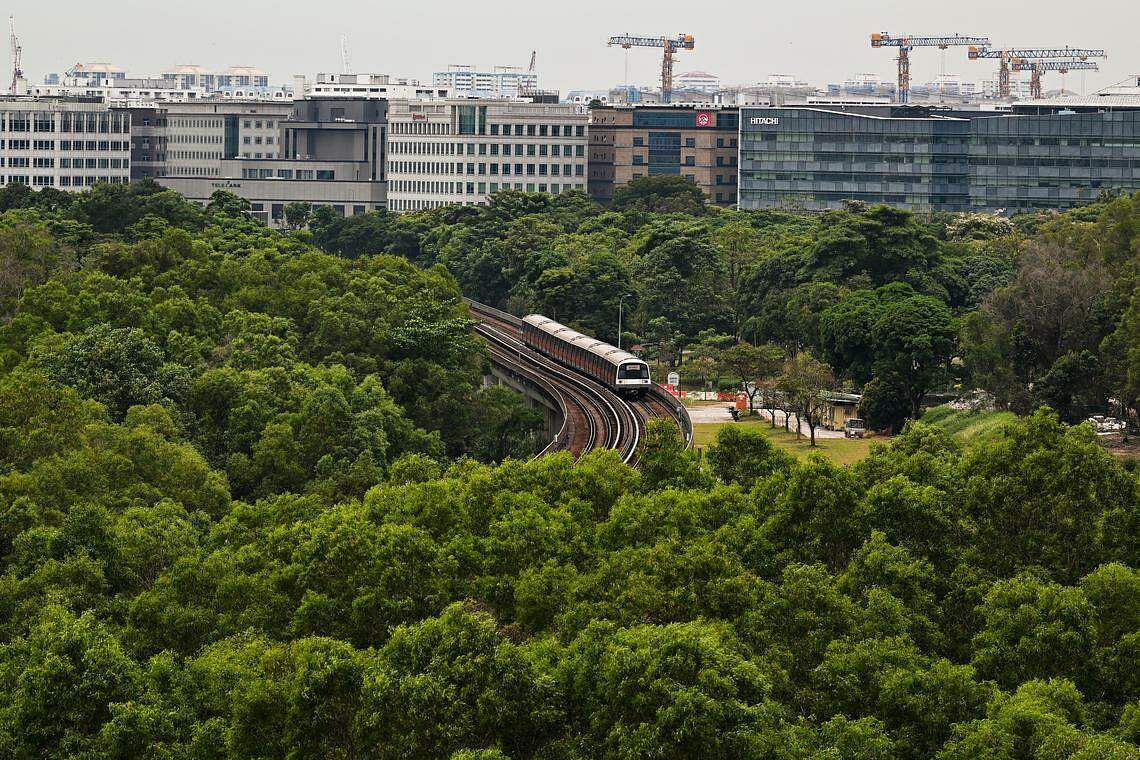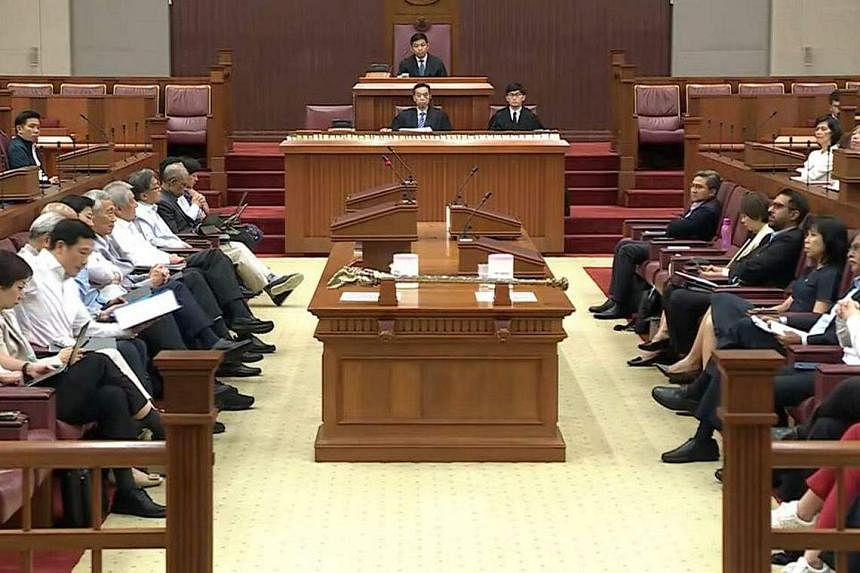from straitstimes.com:
Differing views part of politics, but debates should not tear at seams of society: Ong Ye Kung
MPs can debate and spar, but should not “tear at the seams of our society", said Health Minister Ong Ye Kung in Parliament on April 20, 2023. PHOTO: GOV.SG
Goh Yan Han
Political Correspondent
UPDATED
20 APR 2023, 11:14 PM SGT
FacebookTwitter
SINGAPORE - From foreign workers to how government spending is funded, airing different views is part of politics, but debates in the House should not pit one group against another, Health Minister Ong Ye Kung said on Thursday.
MPs can debate and spar, but should not “tear at the seams of our society, and if we keep doing that, it will sow disunity and divide our society”, he said in Parliament in response to
points raised by two opposition MPs earlier in the debate on the President’s Address.
On Tuesday, Non-Constituency MP Leong Mun Wai alleged that the People’s Action Party (PAP) Government had tried to paint the Progress Singapore Party (PSP) as xenophobic, nativist and even racist when the PSP had merely sought to give voice to the anxieties and concerns of Singaporean workers.
Mr Ong said the Government has always acknowledged concerns raised by various members of the House, including by the PSP. This includes Singaporeans’ anxieties about jobs and competition in a globalised and fast-changing economy, and
the affordability and accessibility of HDB flats.
“We are working hard to adjust policies, and make deliberate efforts to address these issues,” he said. “But I hope Mr Leong will also acknowledge the serious concern we have over the way he raises and debates issues.”
Mr Ong cited the debate in July 2021 on the Comprehensive Economic Cooperation Agreement (Ceca) between Singapore and India, which came after “much demonising” of the agreement, with the discourse taking “a worrying racial undertone”.
Mr Ong, a former free trade agreement negotiator, delivered
a ministerial statement in the House on the pact, and explained to parliamentarians how Ceca preserved Singapore’s right to impose immigration policies and work pass conditions for foreign nationals who want to work here.
But when Mr Leong, who is PSP chief,
filed a motion on foreign talent policy in September 2021, he continued to refer to Ceca as a cause of widespread anxiety among Singaporeans on jobs and livelihoods, said Mr Ong.
This “did little to reduce the raw emotions and misimpressions on Ceca that had been stoked”, said Mr Ong. “It was as if my ministerial statement and explanation in July 2021 did not take place.”
Mr Leong and the PSP know that race issues can be played up in multiracial Singapore, he added. “Our harmony is hard-earned. Let’s not take it for granted.”
Non-Constituency MP Hazel Poa said in response that her party was not targeting any particular race, but had in that debate pointed out that the increase in foreign workers of a particular nationality was outpacing that of other nationalities.
The Government’s new Complementarity Assessment Framework for employment pass applications, which includes nationality as a criterion, is recognition that this is a valid concern, she added.
Mr Ong replied that the Government has always acknowledged the angst and anxiety of Singaporeans on many issues. “But we will see. Let’s see how the debate moves on henceforth,” he said.
Fundamental differences between PAP and WP on Govt revenue, reserves
Addressing Workers’ Party (WP) MP Leon Perera’s speech, Mr Ong said Mr Perera had asserted that the Government tries to push a single “dominant narrative”, without regard to alternatives raised by the WP.
“This cannot be true. If not, we will not be having such extensive debates on so many issues in this House,” said Mr Ong.
When ideas are raised in the House, they are welcomed and taken in when appropriate, regardless of party. Many ideas are not fundamentally at odds with existing policies but instead build on them. And when the Government has a different view, it explains why, Mr Ong added.
“Very often, the WP as opposition wants more of what is already being done. Whatever the Government proposes, ask for more. So here is one difference between our two parties. I don’t think it’s a major one, and is again part and parcel of political contestation,” he said.
But there is a fundamental difference when it comes to the WP’s ideas for the Budget, said Mr Ong. To do more, one has to spend more, and one has to say where the money comes from, he said.
The WP has never supported the goods and services tax (GST) system, he noted. An alternative budget without the GST simply cannot work and is not a viable alternative, he added.
“You cannot give up a major source of revenue and yet want to spend more in so many areas. I’m new to this subject, I may have misunderstood WP’s position. Perhaps it has changed its long-held position and now accepts that GST is needed, but merely objects to the increase from 7 per cent to 9 per cent,” said Mr Ong.
In response, Mr Perera said the WP had in 2018 said it accepted the reality of the GST being at 7 per cent, acknowledged that the substantial revenue it generates was a structural part of the Government’s revenue, and that too many trade-offs would be involved if the tax was scrapped.
The party opposes the two percentage point hike and has put forth proposals for other ways to cover that part of revenue, he clarified.
To make up for loss of revenue from the two percentage point increase in GST, the WP had
proposed drawing 60 per cent of the Net Investment Returns Contribution (NIRC) for government spending, up from half now.
The NIRC currently pays for about one-fifth of government spending. It consists of up to 50 per cent of the net investment returns on the net assets invested by GIC, the Monetary Authority of Singapore and Temasek, and up to 50 per cent of the net investment income derived from past reserves from the remaining assets.
Mr Ong said the Government will not agree to this proposal, and that this is also a fundamental difference between the PAP and the WP that has to do with the ruling party’s values and beliefs.
The Government’s view is that the reserves belong to all generations of Singaporeans, current and future, and have to be safeguarded, he said.
“It is very tempting, even seductive, to say, let’s shift from half-half to 60-40. But we debated and enshrined the fiscal rules in our Constitution not that long ago,” said Mr Ong.
“We should not, at the first sign of need, push for changes in the rules just to take the easy way out.”























